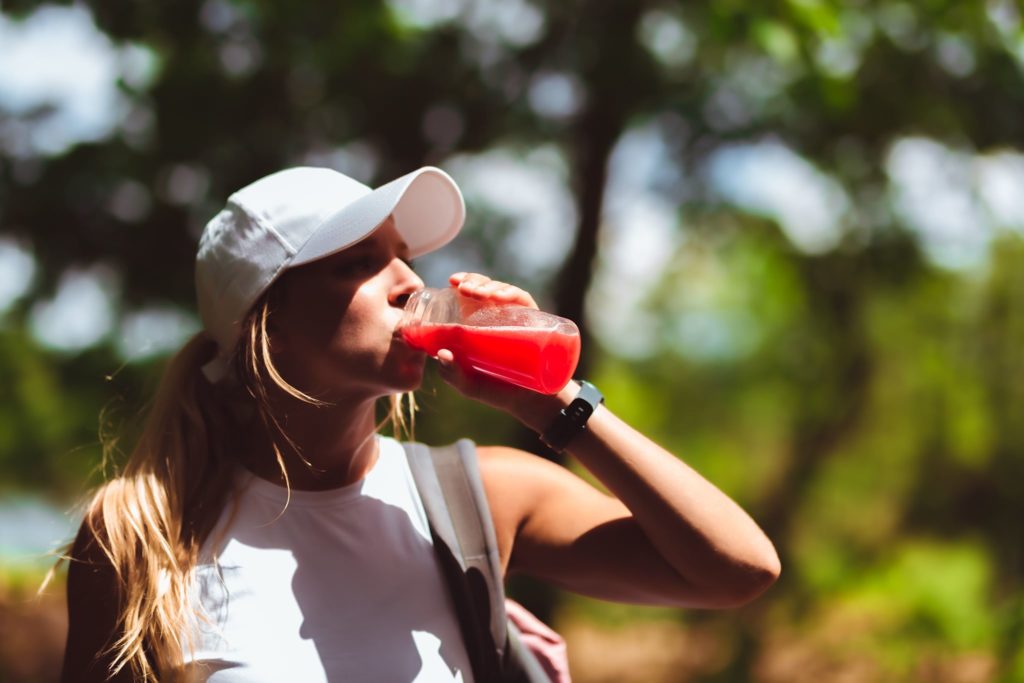
Do you drink caffeinated drinks for a quick pick me up? If so you are not alone. In fact, 90 percent of Americans consume some form of caffeine daily: 9 out of 10 people! Caffeine has many benefits, however consuming caffeine in large amounts for an extended amount of time can lessen its benefit. Although it may seem counterintuitive, there are benefits to abstaining from caffeine consumption for short stints of time. As a health and wellness company AdvoCare® understands that knowledge is power, and understanding how to include caffeine in your daily diet effectively may help improve its benefits and outcomes.
What is caffeine and how does it work?
Caffeine is a natural stimulant mainly found in tea, coffee, and cacao plants. It works by stimulating the brain and central nervous system, which leads to the feeling of alertness. Caffeine competitively binds to the adenosine receptors in the brain, which blocks cells in the brain from sensing adenosine. As a result, instead of slowing down or feeling fatigued because of adenosine levels, cellular activity speeds up. Caffeine sensitivity is different for everyone, and too much caffeine may increase your heart rate and blood pressure, interrupt your sleep, and cause jitters. Although there are no FDA regulations on the amount of caffeine an average person could safely consume in a day, most experts recommend a maximum of about 400 milligrams of caffeine a day.
Read Also: What To Look For In An Energy Drink
Why can’t I just increase the caffeine if it’s not working anymore?
If you notice that your favorite caffeinated product isn’t working as well as it used to, it may not be a recipe change but that your body’s response has changed. You may be building a tolerance to caffeine levels even as you intake more. Caffeine tolerance happens when the effects of caffeine decrease over time with regular consumption and you may notice a loss of mental alertness and physical performance. There are things you can do to help.
Tips For Maximizing Your Energy Level
Take a break from Caffeine. It may seem counterintuitive but taking a break can enhance the effects of caffeine when you resume use. Cycling caffeine intake on and off or caffeine cleanses involve eliminating caffeine for at least two weeks or even as long as two months. When you cycle caffeine you give your body a chance to reset. After a caffeine cleanse, try not to drink large amounts of caffeine so that you do not build up a tolerance again in the future.
Eat For Sustained Energy. Eat foods that help to support your energy levels. The type and quantity of food you consume play an integral part in determining how much energy you have. Try these energy packed foods to support your energy throughout the day.
- Bananas are an excellent source of complex carbs, potassium, and vitamin B6. B vitamins are great for helping to assimilate energy stores in your body.
- Foods high in protein like fish, eggs and edamame help to fuel your body. Protein takes longer to break down than carbohydrates, which means it supplies longer lasting energy.
Drink water! It may not be a common go to for energy, but water is essential for life. Not drinking adequate amounts of water leads to dehydration, which can slow down bodily functions and make you feel tired.
Caffeine can be a useful tool, but as in all things, moderation is recommended. A balanced dietary approach and incorporating the 5 Pillars of Wellness will best help you reach your health and wellness goals.




